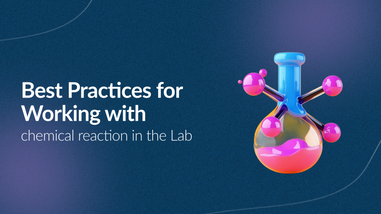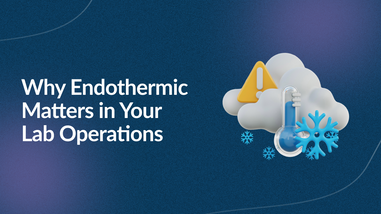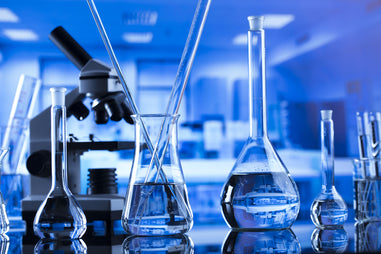- No products in the cart.
Understanding chemical grades is essential for people in the laboratory supply chain, as ordering the incorrect chemicals can cause delays, legal concerns, and safety issues. In this article, we'll explain chemical grade types, along with their common uses, so that you order the right chemical, for the right job, the first time.
Common Chemical Grades
The three most common chemical grades are ACS, Reagent, and Laboratory.
For this article's purposes, we'll review all the chemical grade types so you understand what's options are available to you.
ACS
ACS is the highest purity available. It meets or exceeds standards set by the American Chemical Society (ACS). ACS grade chemicals typically are the most expensive, as they come with a certificate of analysis. If you have medicinal, food, and drug applications that have stringent quality specifications, you'll want to use an ACS grade (≥95%) chemical for sure.
Reagent
Reagent chemical grade is appropriate for analytical work. The purity is similarly equal to ACS grade (≥95%) and is more than sufficient for general laboratory use.

USP
USP is used primarily in laboratories. USP is a grade with enough purity to pass specific tests scheduled and prescribed by the US Pharmacopoeia (USP) and is determined acceptable for drug use in some instances.
NF
NF grade contains enough purity to meet the standards required by the National Formulary (NF). However, the grade impurities are still not known, thus making it more commonly used for educational purposes and as an upper-level intermediate quality chemical.
HPLC
HPLC is high-performance liquid chromatography. However, it's a technique used to separate, recognize, and calculate each chemical compound from a mixture.
LP Grade ( Low Particulate ) Grade
Low Particulate Grade (LP Grade) refers to a low level of particulate matter found in the chemical. This grade is generally used in cleanroom environments.
Laboratory Grade
Laboratory grade has the lowest purity. Its primary use is in educational applications. Laboratory grade isn't able to be used for medical, drug, or any kind of food due to its impurity level.
Pure
Pure is a lower-level intermediate quality. Even though this grade contains some impurities, it is best for educational purposes due to its purity being more than enough.
Technical
Technical is a good-quality grade for industrial use but must be used with caution when substituting for reagent-grade or a lab-grade chemical.
Before ordering chemicals, follow the below tips to make sure you're ordering the right chemical for the correct use.
-
Make sure you're buying chemicals from a reputable company
-
Make sure the chemicals come with a certificate of authenticity
-
Make sure to order the correct chemical grade
-
Make sure you have a proper waste disposal system for any purchased chemicals
-
Make sure you understand the most effective use for the chemical
-
Make sure you have the proper (temperature) storage available
The key to chemical ordering success is to determine and understand the exact needs before making any purchases, and if you don't know what you need, reaching out to a proven chemical supplier, is the best place to start. By doing the proper research upfront, you'll keep everyone in the office safe while keeping shipping and chemical costs down.
For over 40 years, Lab Pro Inc. has been committed to providing critical laboratory chemicals and reagents in California and worldwide. To learn more, visit the biggest Lab Supply showroom in California, or contact us online or at 888-452-2776.












































